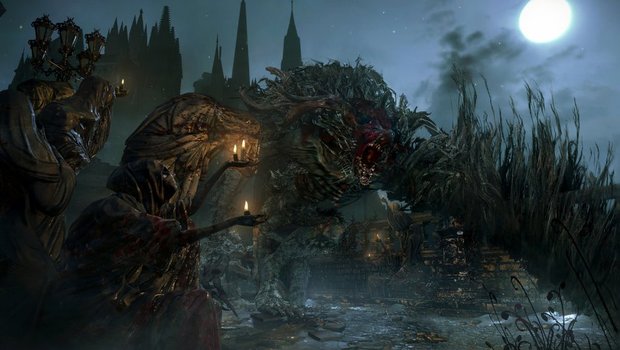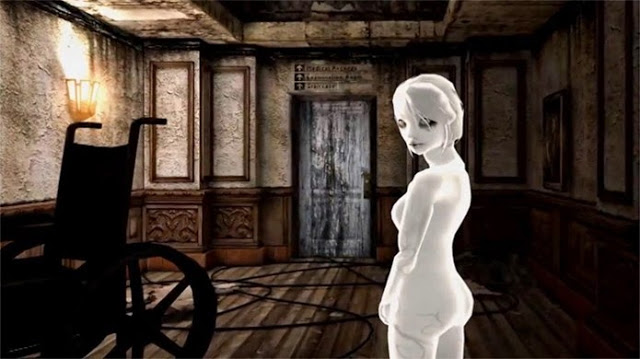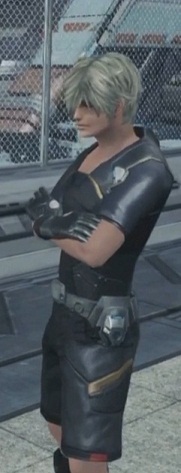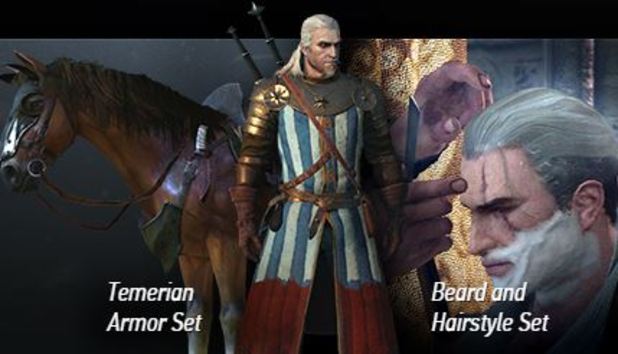

It's fitting that the foundation of Tales of Graces f's story is the impact of time on the strength and loyalty of friendship. It almost directly mirrors the Tales series' life cycle -- Graces is like an old JRPG friend that's back to reclaim its place in your life. Your friend hasn't really changed all that much, but you also remember the fun you had together, and slowly, you realize how much you want them back in your life. And that's exactly where Graces succeeds; it captures so much of the magic and charm of classic JRPGs. For those yearning for a quality role playing title again, Tales of Graces f won't disappoint you, but those looking for something new and fresh, Graces just doesn't satiate that desire. What it does offer is one of the better action-oriented battle systems to hit an RPG in ages.
As mentioned previously, Graces focuses on cementing the bonds of friendship. The narrative lays down this concept by introducing the characters in childhood. There's brothers Asbel and Hubert, sons of the Lord of Lhant; Hubert's the shy, sensible one, while Asbel rebels against his fate as heir to his father's Lordship. It's in his first act of rebellion that Asbel and his brother meet an enigmatic, amnesiac girl who they name Sophie. Now throw in a best friend who secretly is pining for Asbel, a lonely prince who's never had any friends, and one big unfortunate incident, and you have the recipe for a typical RPG. But here's where things heat up -- flash forward to seven years later and you'll see how that particular tragedy shook the core of each of these characters. Suddenly the friends are brought back together -- not knowing that they must play a major part in the fate of world.
Seeing the main characters in their childhood not only establishes their connection from the get-go, but it also gives a perfect vantage point to how the characters have evolved. Unfortunately, it's hard not to feel like we've seen there characters before… and in other Tales games at that, which you'll notice if you've played many of them. For instance, Pascal is a cross between Norma from Tales of Legendia and Rita from Tales of Vesperia, and Malik plays the practical, experienced character like Jade from Tales of the Abyss. It's not all bad though; there's a brilliant lead up to a character's transformation into the ultimate villain. And while the narrative may play it safe, it does keep you invested enough to keep watching the mysteries unravel. Ultimately, Graces' shining moment is the continual growth of the characters' dynamic -- even with the cheesy lines it's hard not to crack a smile.
Where Tales does walk out of Generic Land (not a registered trademark) is in its action-oriented battle
system. It's always been the most unique hook of the Tales games, but now it's
even more refined. Battles consist of combining your Assault Artes -- fast, basic
attacks -- and Burst Artes --slower, more powerful attacks. Every action costs
Chain Capacity (CC) points; the more CC you have, the longer you can chain
attacks together. These can be restored by guarding or not attacking, and the
more full your CC gauge is, the more likely you are to land critical hits and
special attacks.
In addition, Graces is all about reading your enemy correctly, dodging at just the right moment, and attacking when they're vulnerable. The smooth dodging system quickly becomes second nature; there are quick steps, which dodge laterally and are ideal for avoiding vertical attacks, and back steps, which dodge horizontal attacks. Playing Graces f on normal, we didn't find it too tough until we hit around level 20, where the difficulty spikes and boss battles become super intense. A saving grace? There's an option to always change the difficulty along with an auto-battle option if you just want to babysit your heroes.




 The Witcher 3 Guide On All Hair/Beard Styles And Where To Get Them, Map Location and Screenshots Revealed
The Witcher 3 Guide On All Hair/Beard Styles And Where To Get Them, Map Location and Screenshots Revealed Shadow Of The Eternals Wiki – Everything You Need To Know About The Game .
Shadow Of The Eternals Wiki – Everything You Need To Know About The Game . FIFA 15 vs FIFA 16 which is better - Graphics comparison
FIFA 15 vs FIFA 16 which is better - Graphics comparison Shiftlings (PC) Achievements / Unlockables
Shiftlings (PC) Achievements / Unlockables Alan Wake's American Nightmare Achievements List
Alan Wake's American Nightmare Achievements List